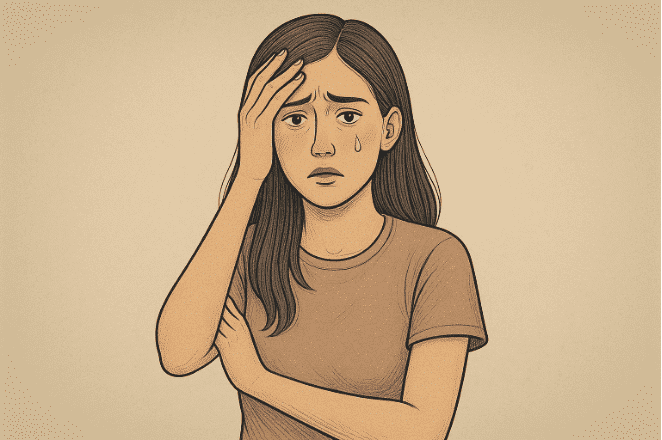Key Takeaways
- Antisocial Personality Disorder (ASPD) involves a pattern of disregard for others’ rights, while Borderline Personality Disorder (BPD) is characterized by emotional instability and fear of abandonment.
- ASPD is more prevalent in men and features limited emotional range, whereas BPD affects men and women equally and involves intense emotional experiences.
- Both disorders share impulsivity and relationship difficulties but stem from different core issues: lack of empathy in ASPD versus emotional dysregulation in BPD.
- Treatment approaches differ significantly: BPD responds well to specific therapies like Dialectical Behavior Therapy (DBT), while ASPD is generally more resistant to treatment.
- A Mission for Michael (AMFM) offers comprehensive personality disorder treatment programs providing free confidential assessments, multiple therapy modalities including DBT and CBT, and various levels of care from outpatient to residential treatment.
The Critical Differences Between ASPD and BPD You Need to Know
At their core, Antisocial Personality Disorder (ASPD) and Borderline Personality Disorder (BPD) represent different fundamental issues. ASPD centers around a pervasive pattern of disregard for others’ rights and boundaries, often accompanied by manipulation and lack of remorse.
BPD, conversely, revolves around emotional instability, intense fear of abandonment, and unstable self-image. These foundational differences create distinct patterns of behavior, relationship dynamics, and treatment responses.
Perhaps the most striking difference is emotional experience. Individuals with ASPD typically show limited emotional range and minimal anxiety, while those with BPD experience overwhelming emotions and significant distress.
This emotional distinction helps explain why people with BPD often seek treatment voluntarily to relieve their suffering, whereas those with ASPD rarely recognize their behavior as problematic unless faced with legal consequences.
Founded in 2010, A Mission For Michael (AMFM) offers specialized mental health care across California, Minnesota, and Virginia. Our accredited facilities provide residential and outpatient programs, utilizing evidence-based therapies such as CBT, DBT, and EMDR.
Our dedicated team of licensed professionals ensures every client receives the best care possible, supported by accreditation from The Joint Commission. We are committed to safety and personalized treatment plans.
What Is Antisocial Personality Disorder?

ASPD involves emotional detachment and deliberate manipulation of others for personal gain.
Antisocial Personality Disorder represents a pervasive pattern of disregard for and violation of the rights of others, beginning in childhood or early adolescence and continuing into adulthood.
Individuals with ASPD typically show little concern for societal norms, laws, or the feelings and well-being of others. This disorder is characterized by manipulation, deceitfulness, and a notable lack of remorse for harmful actions, traits that significantly impair social functioning and interpersonal relationships.
Common ASPD Symptoms and Behaviors
The common features of Antisocial Personality Disorder revolve around a fundamental disregard for social norms and others’ rights. Individuals with ASPD often exhibit a pattern of deceitfulness, including repeated lying, use of aliases, or conning others for personal profit or pleasure. They typically demonstrate impulsivity, failure to plan ahead, and difficulty maintaining consistent employment or honoring financial obligations.
People with ASPD frequently show irritability and aggressiveness, indicated by repeated physical fights or assaults. Perhaps most distinctively, they display a striking lack of remorse, appearing indifferent to or rationalizing having hurt, mistreated, or stolen from others. This callousness extends to an inability to empathize with others’ feelings, leading to exploitative relationships and manipulative behaviors.
Who Gets Diagnosed With ASPD?
Antisocial Personality Disorder shows a marked gender disparity, with significantly higher prevalence among men. Epidemiological studies suggest men are diagnosed with ASPD at rates three times higher than women, though some research indicates this gap may partially reflect diagnostic bias rather than true prevalence differences. Environmental factors, including childhood adversity, parental criminality, and inconsistent discipline, play substantial roles in ASPD development.
Diagnosis requires an individual to be at least 18 years old, though evidence of conduct disorder before age 15 is necessary. This age requirement acknowledges that personality continues developing throughout adolescence. Interestingly, symptoms often peak in the late teens and twenties, with some natural reduction in antisocial behaviors occurring as individuals age into their forties, a phenomenon sometimes called “burnout.”
What Is Borderline Personality Disorder?

BPD involves emotional dysregulation and relationship instability driven by fear of abandonment and unstable self-image.
BPD is characterized by a pervasive pattern of instability in interpersonal relationships, self-image, and emotions, combined with marked impulsivity.
Unlike the emotional detachment seen in ASPD, individuals with BPD experience emotions with overwhelming intensity. This emotional dysregulation forms the core of BPD, creating a life often described as an emotional rollercoaster with dramatic shifts between extreme emotional states that can change rapidly, sometimes within hours or minutes.
BPD affects approximately 1.6% of the general population and occurs equally among men and women, though it may be diagnosed more frequently in women due to diagnostic biases.
Key BPD Symptoms to Recognize
The defining sign of BPD is emotional instability coupled with an intense fear of abandonment. Individuals with BPD often engage in frantic efforts to avoid real or imagined abandonment, which may include pleading, clinging behaviors, or making threats of self-harm.
Their relationships typically alternate between extremes of idealization and devaluation—the person may initially place someone on a pedestal, then suddenly shift to seeing them as entirely bad or worthless when disappointed.
Identity disturbance manifests as an unstable self-image or sense of self, leaving many with BPD feeling they don’t know who they truly are. This often leads to dramatic changes in values, goals, and aspirations. Many individuals with BPD also experience chronic feelings of emptiness, inappropriate intense anger, stress-related paranoia, or dissociative symptoms.
How BPD Affects Daily Life
Living with BPD means managing a world where emotions feel overwhelming and relationships seem perpetually unstable. Daily functioning can be severely impacted as emotional storms disrupt work performance, educational pursuits, and social connections.
The intense fear of abandonment often creates a hypervigilance to social cues, with perceived slights or rejections triggering significant emotional reactions that may seem disproportionate to others. These emotional cascades can lead to impulsive behaviors like self-harm, substance use, or relationship sabotage as desperate attempts to regulate overwhelming feelings.
Side-by-Side Comparison: How ASPD and BPD Differ
| Characteristic | Antisocial Personality Disorder (ASPD) | Borderline Personality Disorder (BPD) |
| Core Feature | Disregard for others’ rights; violation of social norms | Emotional instability; intense fear of abandonment |
| Emotional Experience | Limited emotional range; minimal emotional distress | Intense, rapidly changing emotions; high emotional reactivity |
| Relationship Pattern | Exploitation and manipulation for personal gain | Intense attachment with chronic fear of abandonment |
| Self-Perception | Grandiosity, entitlement, lack of remorse | Identity disturbance, chronic feelings of emptiness |
| Empathy | Significantly impaired or absent | Present but inconsistent, fluctuates with emotional distress |
| Impulsivity | Engages in risky/exploitative behavior for excitement or gain | Impulsive behavior aimed at relieving emotional distress |
| Gender Distribution | More common in men (male-to-female ratio approximately 3:1) | More common in women (female-to-male ratio approximately 3:1) |
| Treatment Seeking | Rarely voluntary; often court-mandated | Often voluntary, seeking relief from suffering |
| Treatment Response | Generally poorer outcomes; challenging to treat | Better outcomes with dialectical behavior therapy, DBT |
Treatment Options for Antisocial Personality Disorder
Psychotherapy Approaches That Show Promise
Cognitive Behavioral Therapy (CBT) adapted specifically for antisocial behavior has shown modest effectiveness for ASPD. These approaches focus on addressing distorted thinking patterns, developing impulse control skills, and building empathy.
Therapists work to help individuals recognize the consequences of their actions and develop alternative behaviors that don’t harm others. CBT typically employs highly structured sessions with clear goals and homework assignments to reinforce skills outside therapy.
Medication Management
No medications specifically treat the core features of ASPD, but pharmacotherapy may help manage specific symptoms or co-occurring conditions.
Mood stabilizers and anticonvulsants like carbamazepine and lithium have shown some efficacy in reducing aggression and impulsivity. Antipsychotics may occasionally be prescribed for severe aggression or when psychotic symptoms are present. SSRIs might help manage co-occurring depression or anxiety but generally don’t impact the fundamental antisocial traits.
Medication compliance presents a significant challenge with this population, and the potential for medication misuse or diversion must be carefully considered.
Effective Treatments for Borderline Personality Disorder
1. Dialectical Behavior Therapy (DBT)

Dialectical Behavior Therapy, developed by Marsha Linehan specifically for BPD, has the strongest research support among BPD treatments.
Dialectical Behavior Therapy (DBT) combines individual therapy, group skills training, phone coaching, and therapist consultation to address the complex needs of individuals with BPD. DBT focuses on four key skill modules: mindfulness, distress tolerance, emotion regulation, and interpersonal effectiveness. These skills directly target the core difficulties experienced in BPD.
A complete DBT program typically lasts at least one year, though many individuals continue skills groups longer while transitioning to less intensive individual therapy.
2. Mentalization-Based Treatment
Mentalization-Based Treatment (MBT) focuses on enhancing the ability to understand one’s own and others’ mental states, thoughts, feelings, intentions, and desires.
People with BPD often struggle with mentalization, particularly during emotional distress, leading to misinterpretations of others’ intentions and reactive behaviors. MBT helps individuals develop a more accurate understanding of their own and others’ minds, reducing interpersonal conflicts and emotional reactivity.
AMFM’s Expert Approach to Antisocial and Borderline Personality Disorder Treatment
At A Mission For Michael (AMFM), our specialized clinicians possess the expertise to accurately diagnose and treat both ASPD and BPD, recognizing that proper differential diagnosis forms the foundation of successful intervention.
Our comprehensive treatment programs address the unique challenges each disorder presents. For BPD, we offer evidence-based therapies including Dialectical Behavior Therapy (DBT), Schema-Focused Therapy, and Interpersonal Therapy through our partial hospitalization program, Intensive outpatient program, and outpatient services.

Our treatment centers with top tier amenities offer the perfect environment for recovery.
For ASPD, our structured behavioral interventions focus on impulse control and developing prosocial skills within our residential and intensive outpatient programs. Our multidisciplinary team understands that personality disorders often co-occur with other mental health conditions, which is why we provide integrated dual diagnosis treatment across our California, Virginia, Washington state, and Minnesota locations.
With free confidential assessments, insurance verification services, and personalized treatment planning, AMFM ensures you receive the specialized care necessary for lasting recovery and improved quality of life.
Frequently Asked Questions
Why is ASPD so much harder to treat than BPD?
ASPD is treatment-resistant primarily because individuals rarely experience distress about their own behavior and don’t recognize it as problematic. Unlike BPD, where people often seek help voluntarily to relieve emotional suffering, those with ASPD typically enter treatment only when mandated by courts.
What’s the main difference in how these disorders affect relationships?
The relationship patterns differ fundamentally in motivation and experience. ASPD involves viewing relationships as vehicles for personal gain, with exploitation, manipulation, and emotional detachment being common. People with BPD experience intense fear of abandonment leading to clingy behaviors, idealization followed by devaluation, and emotional dependency. While both create relationship instability, ASPD stems from lack of empathy, whereas BPD stems from overwhelming emotions and attachment fears.
How effective are treatments for these personality disorders?
Treatment effectiveness varies dramatically between the two conditions. BPD has excellent treatment outcomes with evidence-based therapies like Dialectical Behavior Therapy (DBT), with approximately 50% achieving remission within ten years. ASPD treatment is more challenging, with modest improvements possible through structured behavioral approaches.
How can AMFM help with personality disorder diagnosis and treatment?
AMFM provides comprehensive personality disorder assessment and treatment across California, Virginia, and Minnesota, offering free confidential evaluations to determine appropriate care levels. Our experienced clinicians specialize in evidence-based treatments including DBT, CBT, Schema Therapy, and other modalities proven effective for personality disorders.
We offer various program intensities from outpatient to residential care, dual diagnosis treatment for co-occurring conditions, and work with most major insurance providers to make treatment accessible and affordable.












